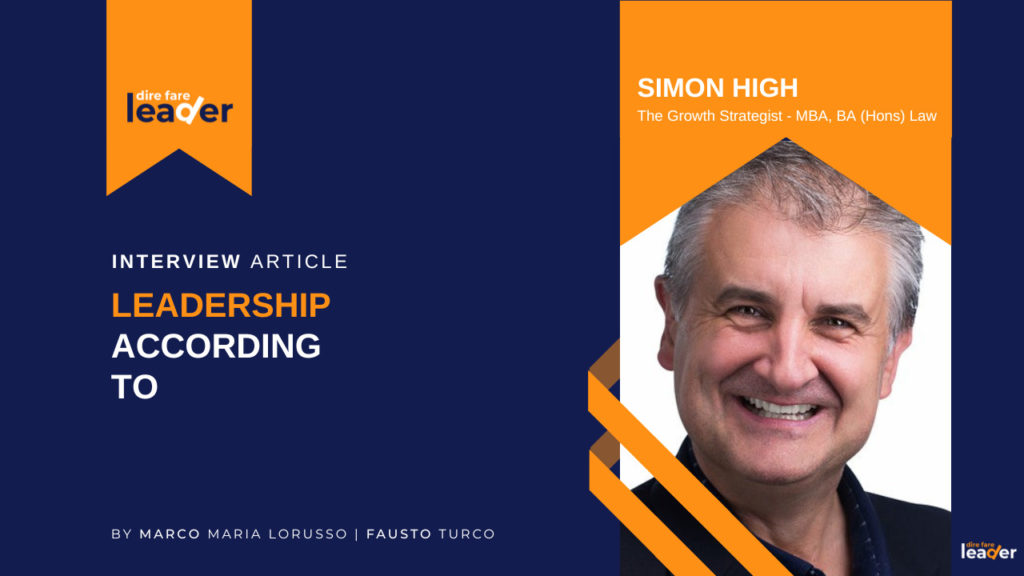
How should the leader of the future be? Culturally open and compassionate, yet ready and capable of making important decisions. This is the opinion of Simon Haigh, Ireland based Growth Strategist:
“Basically, my role is to help leaders and organizations identify, and execute, their goals and improve their reputation. So what must a leader be today? Leaders must embrace global thinking, cross- cultural diversity and understand the big shifts in technology as well as being collaborative-oriented. In other words, a leader today must be authentic, with a humanistic approach. He or she should also demonstrate a degree of vulnerability, which does not mean being weak, rather it means being able to connect with the people who follow him or her ”.
These leadership characteristics are particularly poignant in the post-pandemic era:
“This is the first time in a century that mankind has had to deal with a pandemic. We have all read about the phenomenon of large voluntary employee resignations. Behind this I think we are asking ourselves: what is really important to me?".
In this particular context, inclusive leaders must pay attention to the issues of diversity, be collaborative, curious and be able to ensure the necessary cohesion within the organisation he or she works with.
In short, this is, unfortunately, an attitude that is very different from that adopted by many political leaders today. This does not mean that some traditional characteristics of being a leader do not remain important:
"I have just read a book in which the author argues that leaders must prove to be more authentic, human, with some vulnerabilities and connection towards others, but it must not be forgotten that a leader must nevertheless direct and inspire, to have followers. If a leader proves that he is always scared, he will not be able to have followers: it always takes a fair balance between authenticity and the ability to make decisions to be an impactful leader".
What is different in leadership when you run a small business and when you run a large organization? According to Haigh, in reality, there are many similarities between the SME world and the larger enterprise world - both are after all, businesses and are governed by the 3Rs of success - revenue, reputation and risks.
“Leadership in SMEs must make money but also control reputation and limit risks. The Same thing applies in large companies; what changes is the context and complexity. One danger for large companies is that people who work in head offices feel more important than those employed elsewhere.”
This, of course, does not happen in small businesses. In this context, HR functions should be at the heart of company's strategy:
“The reason is that business doesn't exist without people, so the HR role is critical, particularly today when we are so sensitive to diversity, inclusion, alignment and cohesion. If HR does not take a strategic role in the company, the entire communication, connection and growth journey will suffer".
Speaking of communication, leadership should be of an assertive type, that is, going beyond traditional communications based upon on aggression or passivity.
“When communication is assertive it is also direct, but in a way that also respects the point of view of others, without being aggressive and at the same time not being passive. This approach reduces conflict and increases collaboration: I truly believe that being an assertive leader helps you have followers. Being assertive does not come naturally to all of us – we have to work at it.”
In relation to the future of leadership and the role of young people, Haigh's opinion is clear: “I wrote an article recently, which speaks precisely of the younger generation, which is often spoken of in the negative. It might be true that they spend too much time on cellphones and perhaps social media, but they have shown many skills of effective deal-closers: they are more open minded, they are more empathetic and considerate I think we have to realize that young people have a lot to offer to the rest of the world – they are, after all, the future of leadership ”.